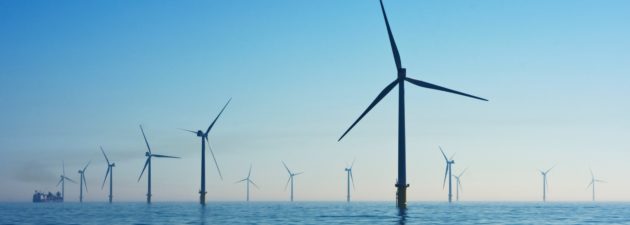As we talk about the fossil fuel industry, there is a noteworthy disparity in the approach between the top six European producers and other global players when it comes to climate change. European firms have pledged to significantly reduce their carbon footprints alongside investing into innovative low-carbon technologies. These strategies are a response to the new European Green Deal. Conversely, American oil and gas companies as well as Russian, Chinese and Saudi nationalised companies seem not to take the same path.
Tag: Responsible Investment
Palm Oil

The spotlight in recent weeks has shifted back upon the palm oil industry. The negative connotations associated with the sector have continued to deepen, but there is a growing number of producers who offer a differentiated product, one made with a focus on sustainability. Worldwide, demand for the commodity has continued to rise which brings nations and climate activists to a crossroad, wondering whether sustainable palm oil can be produced whilst fighting climate change.
The European Green Deal
The ambitious climate mission led by Ursula von der Leyen is starting to gather steam. Europe wants to be the front-runner in climate friendly industries and clean technologies. The policy package comprises of measures to tackle climate and environmental-related challenges through a resource-efficient and competitive economy. The overarching objective of this European project is to become the first carbon neutral continent by 2050 all whilst being the second largest consumer market globally. In order to attain this goal, by 2030 GHG emissions need to be cut by 50-55% of 1990 levels, the figure previously stood at 40%.
Davos 2020

Climate urgency
The attention of business leaders and experts on the climate emergency is higher than ever. This is what emerges from the latest Global Risks Report published every year on the eve of the launch of the World Economic Forum. For the first time, the 750 business leaders and experts from all over the world ranked five environmental and climate issues as the most important risks facing the world in the coming year. In particular, it is climate inaction, extreme events and biodiversity loss that concern world decision-makers, factors that hadn’t made the list before ten years ago.
Digital Footprint
While you don’t see plumes of black smoke being released by the GAFAs (Google, Apple, Facebook, Amazon), you’d be wrong to assume they don’t have a significant environmental impact. Every search, click, or streamed video consume a huge amount of energy and sending a simple email has in reality a whole energy-intensive journey.
Can fast fashion be sustainable?
Shopping streets around much of the world are lined with Christmas decorations, ready to welcome the hordes of shoppers in what is usually the busiest shopping period of the year. But there is a backlash emerging in response to our growing consumerism and the clothing industry is under increasing scrutiny. Not long since the flight shaming movement started, a new trend is gradually emerging in Nordic Countries: the Köpskam – literally the shame of buying, and mainly aimed at the fashion industry.
Reliability: Key to success of clean energy

This content is available only to some investor categories and no profile has yet been defined. Define your investor profile to access this content.
Corporate culture
The social factors included within ESG analysis are wide-reaching, taking into consideration the relationship the corporation strikes with the multiple stakeholders involved in its business: customers, employees, suppliers and local communities.
One area of interest is how employee relations affect corporate value. For every company that we analyse from an ESG perspective we aim to understand employee satisfaction. KPIs reported by the firm such as employee training hours, staff turnover, and outcomes from staff satisfaction surveys can be valuable, as well as third party employer-rating platforms such as Glassdoor.
Sustainable finance, an oxymoron?
Last week the financial sector and the international development sector gathered in Geneva to discuss how asset managers, asset owners and banks can contribute to achieving the UN’s Sustainable Development Goals. Here is why one should resist the temptation of cynicism.
PRI in Person event
Last month, the Quaero Capital ESG team attended the annual PRI event, this year held in Paris. The event was the largest responsible investment conference ever held, with over 1600 attendees from the industry.
